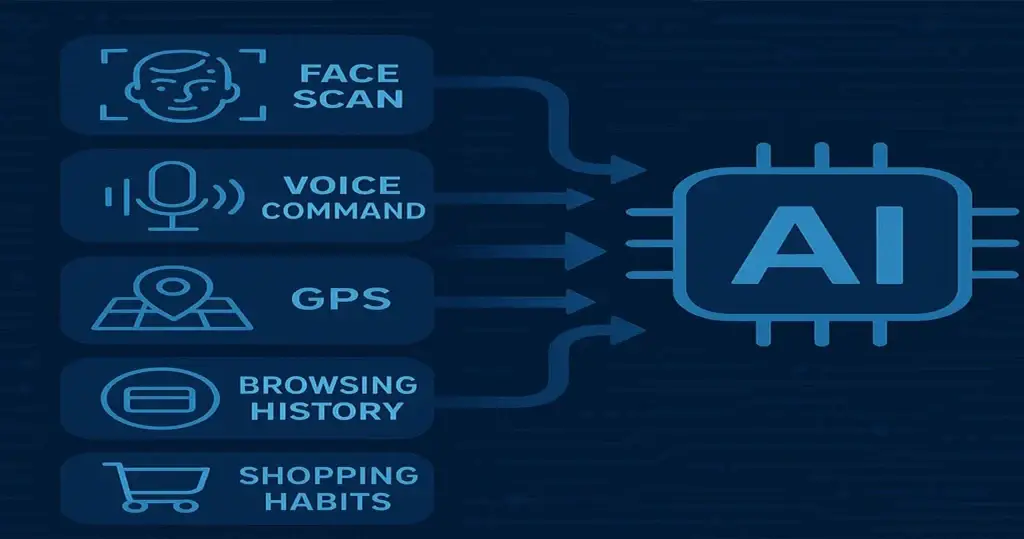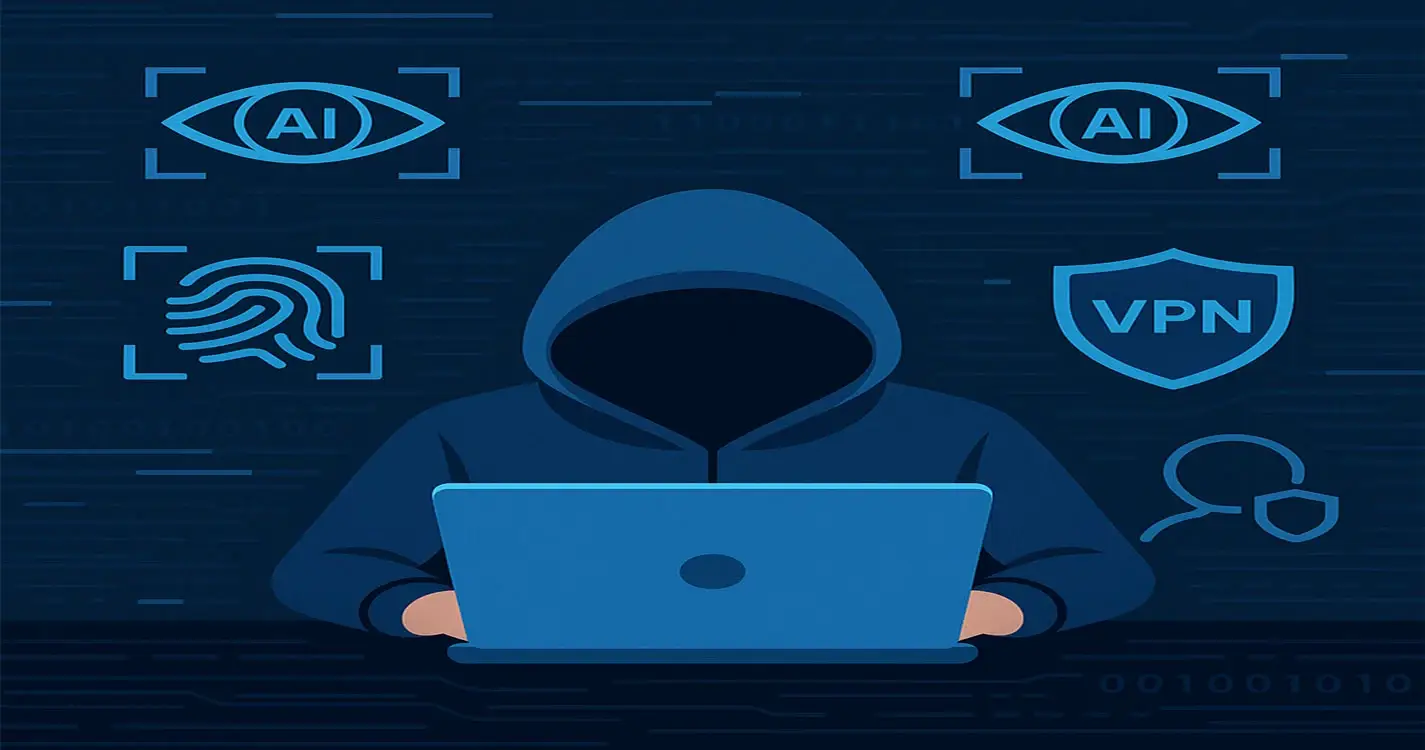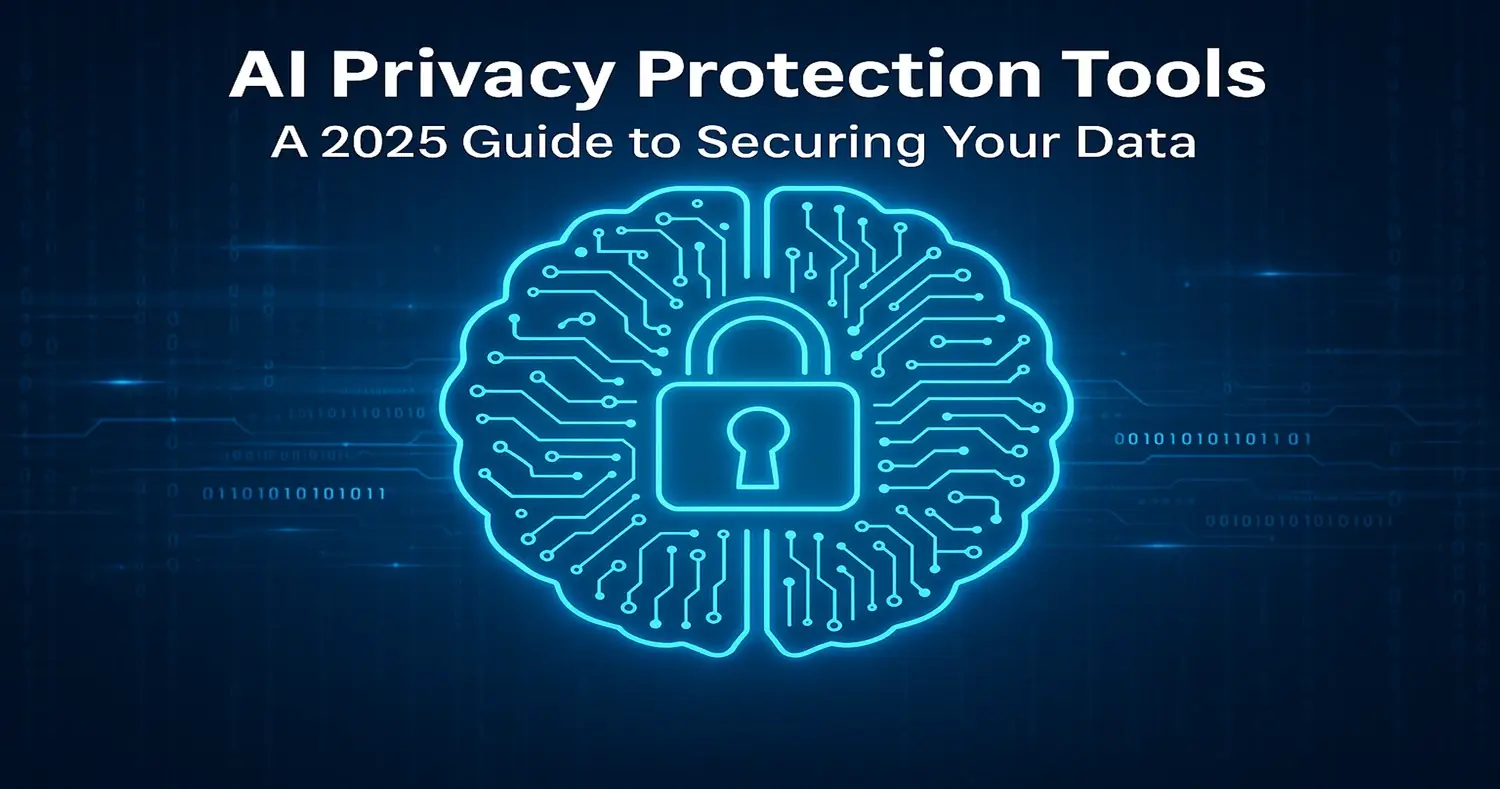Introduction:
In 2025, AI tracking isn’t science fiction it’s silently monitoring you every day. From the moment you check your phone in the morning to asking Alexa a question at night, your digital behavior is being collected, analyzed, and monetized by artificial intelligence systems. These AI-powered trackers can study your location, browsing habits, purchases, and even your voice or face building detailed behavioral profiles without your consent.
But here’s the good news: you can fight back.
This guide breaks down the most effective, up-to-date tools and techniques to protect your data from AI surveillance. Whether it’s switching to a private browser, using a no-log VPN, controlling app permissions, or blocking facial recognition, every step helps you regain control over your privacy.
Let’s dive into the most practical ways to defend your digital life before AI tracking takes it over completely.
What Is AI Tracking and How to Stop It?
AI tracking is a phenomenon, when you’re online and offline activity is collected, tracked and analyzed with the help of artificial intelligence technologies. It includes:

- History
- Search queries
- Prevent biometric data leaks
- Faculty voice command
- Geolocation information
- Purchasing pattern
- Device utilization behavior
All of this is triggered in order to create affluent behavioral profiles which are digested by advertising, content suggestion, and predictive analytics algorithms.
Why You Should Care About AI Tracking
The creepy part is not that you are being watched, the danger lies in the fact that artificial intelligence systems know you far better than you know yourself. The ability to know and manipulate your behavior beforehand is a corporations, governments, and ill-minded party’s weapon.
Key Risks:
- Behavior control through the selected contents
- See e.g. Bias in access to opportunities, loans, or jobs because of an algorithmic reason.
- Mass surveillance without consent
- Data breaches, the ones that leak sensitive personal data
![]()
Learning about AI tracking protection will help you be less exposed to these dangers and achieve digital privacy.
-
Use Anonymous Browsers to Protect from AI Tracking
Your activity is logged and tracked by mainstream browsers to be optimized and monetized. The initial point of protection is the switch to an anonymous browsing software.
Top In private browsers:
- Intimations Brave: Out of the box tracker and ad blocker
- Firefox (privacy Tweaks): Extremely customizable
- Tor – Anonymousness your traffic by means of anonymous relays
- Librewolf – A hardened fork of Firefox that has telemetry disabled
And in case you are seriously worried about your wish to defend your privacy from AI surveillance, then secure browser is not the topic of discussion.
-
Use Anti-Tracking Extensions to Stop AI Profiling
Additional lines of defense can be used even in the case of private browsers.
Extension – Privacy Essentials:
- uBlock Origin – Lightweight yet powerful ad, tracker blocker
- Privacy Badger – Blocks trackers learned while you surf
- ClearURLs – Strips tracking parameters out of URLs
- Decentraleyes – Serves local content to prevent CDN tracking
![]()
Such tools ensure that data never gets to the AI systems that attempt to profile you.
-
Control App Permissions to Limit AI Surveillance
AI tracking hotspots Apps can be a hotspot of AI tracking, and will often collect metadata, occasionally more than is strictly required to use the app itself.
The following are privacy steps that you can take:
- Switch off location services when not using them
- Following withdrawal of access to contacts, photo album, camera and microphone
- One can monitor the tracking using privacy dashboards (Android) or App Privacy Reports (ios).
- Remove the applications that you do not need or switch to open-source alternatives (like Signal or Bitwarden)
Privacy against AI tracking starts by understanding that your phone is an extremely sensorized tracking device, so treat it like one.
-
Best VPNs for Privacy: Stop AI Tracking Your Location
The AI trackers can determine your IP address to observe your location, ISP, and browsing habits. A Virtual Private Network (VPN) conceals this information and codifies your traffic.
Best Privacy VPNs in 2025:
- ProtonVPN – Located in Switzerland and has solid no-log policies
- Mullvad – Has anonymous usage and does not require an email address
IVPN – Excellent transparency and security and features
Avoid free VPNs – most of them log and sell your data, which makes your effort of protecting against AI tracking useless.
![]()
-
Confuse AI with Obfuscation Tools and Anti-Surveillance Apps
When you want to fight AI with its own tools, data obfuscation is a clever plan. You can instead of remaining invisible pollute and distort the information that AI collects about you.
Obfuscation Tools:
- AdNauseam – Clicks on background advertisements to poison your profile
- TrackMeNot -populates the algorithm with bogus search requests
- Blur (by Abine) – Masks email addresses, phone numbers, and credit cards
These tools restricts what AI is able to build by adding “noise” to your digital footprint, thus creating a more complicated task to assemble a coherent profile of you – even when you are online.
-
Best AI Privacy Tools to Protect Your Data
There exist a few tools which are targeted towards AI privacy protection and digital rights.
Tool worth Using:
- Jumbo Privacy – App and device personal privacy assistant
- SimpleLogin – Aliasing email to prevent spam and leaks
- GrapheneOS / CalyxOS – Privacy operating systems based on Android
- NextDNS – Custom DNS blocklist
All of those create an additional layer of control, resulting in the fact that AI tracking systems could hardly get access to your data.
-
Prevent Facial Recognition AI from Tracking You and Biometrics
Facial data is one of the most sensitive information that can be gathered by AI and is most commonly scraped without consent.
How to Stay Safe:
- Photo editing filters can also be used to blur or pixelate faces before posting
- Avoid using applications which require face or fingerprint authentication to log in unless necessary
- Turn off face recognition on social media (e.g. Facebook and Instagram)
It is a powerful measure when you are concerned about the issue of how to counter AI tracking to ensure that your face is not in line.
![]()
-
Limit AI Assistants and Smart Devices
Smart speakers, fitness trackers, and even smart fridges are listening, watching, and learning.
Privacy Tips for Smart Home:
- Always-on microphones should be turned off.
- Separate an IoT network by creating another Wi-Fi network
- Do not connect devices to your primary email or Google account
- Regularly check the logs of device activities
The smarter your house is, the more exposed you are – and these are some of the steps you can follow to prevent AI tracking: cover what your IoT devices can compromise your personal data.
.9. Erase Your Online Footprint to Avoid AI Surveillance
Much of the information that the AI possesses about you is based on what you have already shared online.
Quick Wins:
- Erase outdated digital identities which you no longer use (use services like JustDelete.me)
- Leave people search sites (e.g., Whitepages, Spokeo)
- Set all the social media to privacy
- Think before you post — forever is a long time on the internet
-
Understand What AI Can and Can’t Do
Lastly, just because the AI has more power than we think is not advisable either.
AI is not magic wand. It is a pattern recognition engine. The less you feed it with personal information the less it profiles you. That is how to gain.
Final Verdict: How to Protect from AI Tracking
![]()
- New encrypted and personal browser
- Change to a privacy focused search engine
- Put in place ad/tracker blockers
- Secure your internet traffic with a no-log VPN at all times
- Control app permissions mobile
- Clean your digital trail
- Quantum-secure
- Reduce spy cams on smart devices
- Facial recognition: no
- Understand AI data regulations and consumer privacy laws



